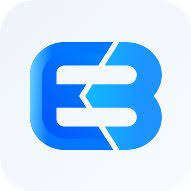Article Directory
Generated Title: MetaMask: Is the Hype Justified? A Data Analyst's Skeptical Take
MetaMask. You can’t swing a digital cat without hitting an article breathlessly proclaiming it the future of crypto, Web3, and maybe even world peace. But as a former hedge fund analyst, I’m trained to ask: What do the numbers actually say? Let's dive in, shall we?
MetaMask: By the Numbers
First, let’s establish what we’re talking about. MetaMask is a crypto wallet – specifically, a browser extension and mobile app – that allows users to interact with decentralized applications (dApps) on the Ethereum blockchain (and increasingly, other chains like Solana). It's essentially a bridge between your browser and the blockchain, letting you sign transactions, manage your digital assets, and access Web3 platforms. And it’s popular. Really popular.
How popular? Estimates vary, but Consensys (the company behind MetaMask) claims tens of millions of active users. Okay, but active doing what? That's the crucial question often glossed over. Are they actively using dApps, or just holding crypto and occasionally swapping tokens? The distinction matters.
A recent announcement highlighted a 400% surge in developer activity following a partnership between MetaMask and TRON DAO. Now, 400% sounds impressive, but let's unpack that. A 400% increase from what baseline? If the original number of active TRON developers on MetaMask was, say, five, then a 400% increase only brings us to twenty-five. Still not a huge number in the grand scheme, and it’s unclear how meaningful that "activity" is. (Is it just developers kicking the tires or actually building and deploying dApps?)
And this is the part of the report that I find genuinely puzzling. Why TRON? TRON has always been a bit of an outlier, a blockchain often associated with... well, let's just say "content of questionable originality." A partnership with TRON doesn't exactly scream "high-value DeFi innovation." It feels more like a grab for user numbers, regardless of the quality of those users.
Rabby Wallet: A Rising Challenger?
MetaMask isn't the only player in the crypto wallet game. Rabby Wallet, developed by DeBank, is emerging as a compelling alternative. Rabby emphasizes multi-chain functionality and security, two areas where MetaMask has faced criticism.
One key difference: Rabby automatically switches to the correct network when interacting with dApps, eliminating the need for manual network switching, which can be a pain with MetaMask. Rabby also offers pre-transaction risk scanning, alerting users to potential problems before they sign a transaction. This is a significant security enhancement that MetaMask currently lacks.

Rabby is also open-source, meaning its code is publicly available for review (and, crucially, auditing by third-party security firms). MetaMask, while improving, has faced scrutiny regarding its closed-source components. Transparency is key in the crypto world, and Rabby scores points here.
Both wallets are now moving into perpetual futures trading, powered by Hyperliquid, and integrating with Polymarket. MetaMask launched "MetaMask Rewards" in October 2025, a gamified loyalty program, and its own stablecoin, mUSD, on Ethereum and Linea in September 2025.
One development worth watching: the potential launch of native tokens for both MetaMask ($MASK) and Rabby ($RABBY). A token launch can be a powerful catalyst for growth and adoption, but it also introduces new risks and incentives. Will these tokens genuinely benefit users, or will they primarily enrich the companies behind the wallets? (History suggests the latter is more likely.)
The Multi-Chain Future (Maybe)
MetaMask has finally embraced the multi-chain future, launching multi-chain accounts that allow a single account to manage multiple addresses across different blockchain networks. Previously, users needed separate accounts for EVM-compatible chains and non-EVM networks like Solana. This update, while welcome, feels like playing catch-up. Rabby has offered seamless multi-chain support for a while.
The shift to multi-chain support utilizes BIP-44, a derivation path standard that allows wallets to generate and organize multiple accounts from a single recovery phrase. However, hardware wallet accounts remain limited to EVM networks, as Solana support is not yet available. This is a crucial limitation for security-conscious users who rely on hardware wallets for cold storage.
The best MetaMask casino sites let players connect their wallets directly for fast, private transactions while enjoying provably fair games on crypto gambling platforms. There is no need to register with an email address, upload identification documents, or deposit funds into a casino-controlled account. Instead, players sign transactions through MetaMask, maintain custody of their assets, and interact with the casino in a fully Web3-native way. More information on this can be found in this article: Best MetaMask Casino Sites to Play at in 2025.
A Qualified "Revolution"
MetaMask is undoubtedly a dominant force in the crypto wallet space. But dominance doesn't equal perfection. The partnership with TRON raises eyebrows, and the lack of transparency around user activity data is concerning. Rabby Wallet offers a compelling alternative, particularly for users prioritizing security and multi-chain functionality. The future of crypto wallets isn't about one-size-fits-all. It's about offering users choices and empowering them with the tools they need to navigate the increasingly complex world of Web3. Whether MetaMask can adapt and evolve to meet these challenges remains to be seen.
